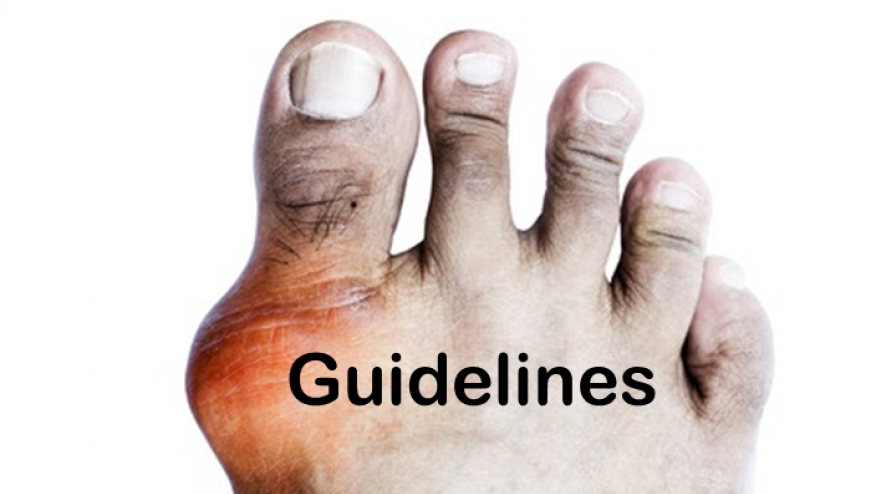2020 ACR Gout Management Guideline Save

In May, the American College of Rheumatology (ACR) released the"2020 Guideline for the Management of Gout"reflecting new clinical evidence since the last guideline published in 2012.
The guideline puts forth 42 recommendations, including 16 strong recommendations, based in 52 PICO questions and a systematic review of the literature by a guidelines committee following GRADE methodology.
The new guideline highlights expanded indications for starting ULT, a greater emphasis to allopurinol as the first line agent for urate lowering therapy (ULT) and new recommendations on the use of HLA-B*5801 testing prior to allopurinol use.
Select recommendations from the paper include:
- A strong recommendation to use a treat-to-target strategy with ULT for all patients with gout
- ULT indications have been expanded to conditionally consider patients with infrequent gout flares or after their first gout flare if they also have moderate to severe chronic kidney disease (CKD stage ≥ 3), marked hyperuricemia (serum urate > 9 mg/dl) or kidney stones
- A conditional recommendation against initiating ULT for patients experiencing their first gout flare without above comorbidities
- A strong recommendation to use allopurinol as the first-line ULT, including in patients with chronic kidney disease
- A strong recommendation to use an anti-inflammatory prophylaxis (e.g., colchicine, NSAIDs, prednisone/prednisolone) when starting ULT for at least 3-6 months rather than less than 3 months, with ongoing evaluation and continued prophylaxis as needed if the patient continues to experience flares
- A conditional recommendation for HLA-B*5801 testing prior to starting allopurinol for patients of Southeast Asian descent (e.g., Han Chinese, Korean, Thai) and African American descent who have a higher prevalence of HLA-B*5801 and against HLA-B*5801 testing in patients of other ethnic or racial backgrounds.
Gout affects 9.2 million adults in the United States. These updated and expanded recommendations can be viewed at Clinical Practice Guidelines Gout.










If you are a health practitioner, you may Login/Register to comment.
Due to the nature of these comment forums, only health practitioners are allowed to comment at this time.